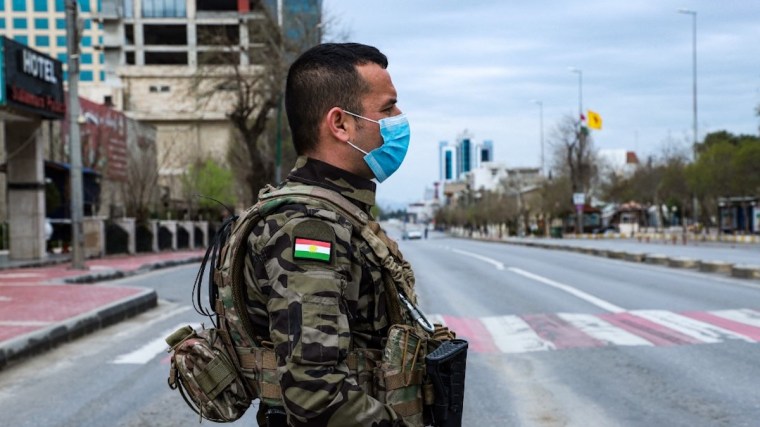On June 8, 2022, Iraqi Kurdish Asayish forces obstructed several crews from various media outlets and detained a journalist to prevent them from covering an explosive-laden drone strike that hit a road in the northeastern area of the city of Erbil, according to the broadcasters’ reports and journalists, who spoke with CPJ in phone interviews.
The strike hit the Erbil-Pirmam road around 9:35 p.m., leaving three people slightly injured and damaging a restaurant and a number of vehicles, the Directorate General of Counter Terrorism said in a statement.
Nabaz Rashad, a reporter for the independent TV news website Westga News, told CPJ that, “minutes after the strike, I arrived at the scene even before the security forces and started going live on our Facebook page via my mobile phone.” While live streaming, he said, “security forces came and hit me with their fists, breaking my mobile phone and receiver. I kept telling them that I am a journalist and have my press ID, but useless!”
“They took me and locked me up inside their military vehicle for an hour, abusing and threatening me,” Rashad added.
When he went to the main Asayish headquarters at Erbil a couple of hours later, Rashad was forced to sign a pledge stating, “I am responsible if any photos and videos go viral,” in order to get his broken mobile phone and receiver back, he said.
Jihad Waisi, a correspondent for the NRT TV, a news broadcaster funded by the opposition New Generation Movement, told CPJ that the security forces intercepted and stopped all the media outlets and forced them to leave the scene, with no exceptions.
“We were a team of three, covering it from a distance, but the security forces came and took all the equipment and our personal mobile phones, asking us to leave the place immediately,” said Waisi, adding that they got back the equipment and mobile phones, except for the camera’s memory card.
In a statement posted on Facebook, Metro Center for Journalist Rights and Advocacy, an Iraqi press freedom organization, urged the security forces “to let the journalists work and cover the scene freely without any obstacles.”
“The attack on Westga News reporter Nabaz Rashad, confiscation of journalistic equipment, and blocking media outlets would not strengthen the security plan nor hide the realities,” Metro Center said.
When CPJ reached out to two journalists from other media organizations who were also prevented from covering the incident that night, they confirmed the information but refused to comment further due to concerns about reprisal from their outlets, which are affiliated with the ruling Kurdistan Democratic Party.
CPJ reached out to Erbil Asayish spokesperson Ashti Majeed via email and messaging app for comment, but did not receive any response.
